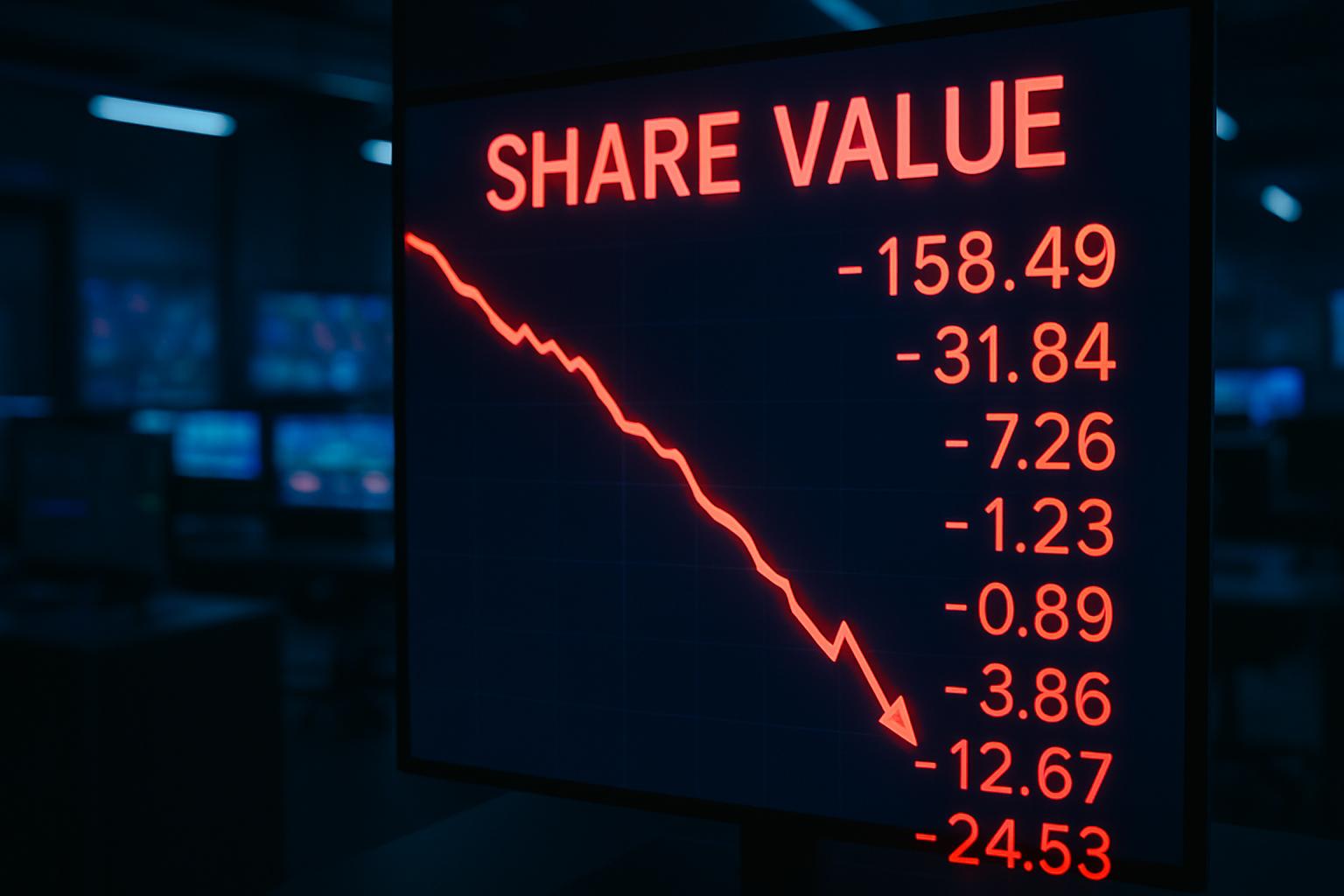The Trade Desk, a key player in the digital advertising technology sector, presents an intriguing case where strong financial results sharply contrast with a steep decline in its stock price. Over the past year, shares of the company have fallen by approximately 65%, recently hitting a new 52-week low around $41.50. This decline is perplexing given the company’s robust earnings and revenue growth.
In its latest quarterly report, The Trade Desk posted revenue of $739 million, marking a 17.7% increase year-over-year, notably surpassing analyst expectations. Earnings per share also came in higher than forecast at $0.45, indicating solid operational performance. Despite these positive factors, investor confidence remains subdued. The stock is trading below both its 50-day and 200-day moving averages, underscoring ongoing bearish sentiment in the market.
The core concern for investors lies not in current figures but in the company’s future growth outlook amid intensifying competition. Amazon, in particular, has aggressively expanded its footprint in the programmatic advertising space through its Demand-Side Platform, capturing advertising budgets previously directed at firms like The Trade Desk. While The Trade Desk maintains nearly 18% growth, this lags behind the broader programmatic market’s faster expansion rate, raising fears of potential market share erosion.
Investor caution is reflected in downgraded analyst ratings and price targets, now hovering around a "Hold" consensus. Several financial institutions have trimmed their forecasts, and short interest in the stock has increased by about 16%, signalling ongoing speculation about further declines. The company’s management responded by authorizing an additional $500 million share repurchase program, signalling their belief that shares are undervalued, although insider selling activity has been notable, which investors watch closely.
Further compounding concerns are macroeconomic factors such as tariff uncertainties, which The Trade Desk’s CEO Jeff Green highlighted, warning of their impact on large brand advertisers, a key customer base for the firm. This vulnerability sets the company apart from competitors focused on small and medium-sized businesses, making it more sensitive to economic shifts and geopolitical risks. The resulting nervousness contributed to a recent near one-third drop in the stock after Green’s comments, prompting several analysts to lower their price targets further.
Amid these challenges, The Trade Desk’s financial health appears stable. The company reportedly holds more cash than debt and generated strong free cash flow, providing a solid cushion as it navigates turbulent conditions. Market observers note that despite near-term hurdles related to product rollouts, such as the slower-than-expected adoption of the AI-driven Kokai platform, and restructuring activities, the firm’s fundamentals remain intact. This has led some analysts to suggest the stock is undervalued at current prices, highlighting potential for upside should the company manage to regain growth momentum.
Nonetheless, investor sentiment remains cautious. Concerns over competitive pressure from tech giants, the company's ability to reaccelerate sales growth, and recent insider selling underpin a guarded outlook. While some market experts offer cautious optimism, forecasting a potential rebound with price targets substantially above current levels, the prevailing mood reflects uncertainty about how effectively The Trade Desk can maintain its position in a rapidly evolving and competitive digital advertising landscape.
📌 Reference Map:
- [1] (ad-hoc-news.de) - Paragraphs 1, 2, 3, 4, 5
- [2] (Investing.com) - Paragraph 1, 6, 7
- [3] (Investing.com) - Paragraph 1, 7
- [4] (Reuters) - Paragraph 4
- [5] (TipRanks) - Paragraph 4, 6
- [6] (Nasdaq) - Paragraph 3, 6
- [7] (Nasdaq) - Paragraph 6, 7
Source: Noah Wire Services
